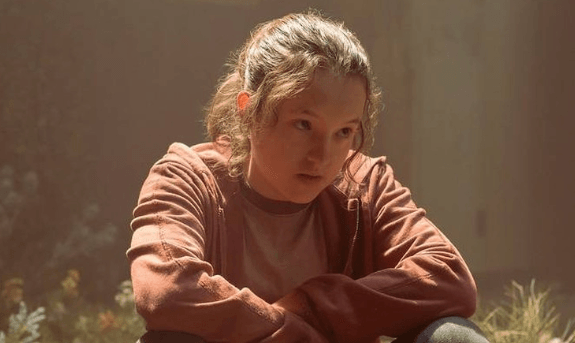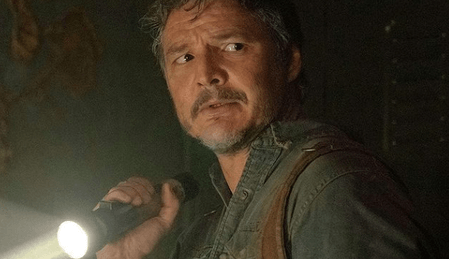SUMMARY
This is AI generated summarization, which may have errors. For context, always refer to the full article.

Note: The series’ opening scene depicts a scientist alluding to how global warming could have triggered the fungal pandemic. This is why I can say I wrote this article as a climate advocate.
At a quick glance, there is not a lot about HBO’s The Last Of Us that is groundbreaking.
We have seen many films and shows of how the world as we know it came to a stop due to a pandemic; we even had a taste of that in real-life. We have witnessed stories of an older man protecting a gifted young girl from the horrors of the world; Logan is a good example of this. There have been countless examples of video game adaptations, yet almost all of them failed to capture the essence of their source material.
What made The Last Of Us stand out is it uses familiar styles and techniques of storytelling so well that its world, characters, stakes, and moments feel that much more immersive and captivating.
Now, the odds of global warming causing a fungus like Cordyceps to infect a different organism from what it can currently infect after only a few decades are really low. Yet rising temperatures have been proven to have a huge impact on human health, including outbreaks of familiar diseases already being experienced by millions worldwide.
What is worse is that as the climate continues to change, so would many parts of both the natural and human environment that, without proper solutions, would create even more crises. The combined effects of these could make the COVID-19 pandemic look like child’s play by comparison. And based on the last few years, COVID certainly was not a figurative child’s play.
This is why The Last Of Us is timely and relevant. Although obviously not to the same degree as in the series, we as viewers now have an idea of what it feels like to have life as we know it taken away from us, through circumstances beyond our control. As a result, we find ourselves reflecting on what really matters the most, to reexamine our humanity.
Not romantic
Love is at the heart of what it means to be human. It has been portrayed in a romanticized light in most forms of literature, often as a force that allows human beings to overcome bad intentions and habits, and experience personal growth.
Yet in this HBO adaptation, there is no black and white, only shades of gray.
Throughout the season, characters that would traditionally be cast as “good” like Joel and Ellie both have dark sides to them. Meanwhile, the antagonists encountered are more fleshed out compared to those in other shows, with backstories and traits that can make the audience more understanding, even sympathetic of their actions.
The Last Of Us takes this approach one step further, as it dares to depict that love is as destructive as it is transcendent.
During this season, characters committed heinous, deplorable acts that are driven by their love for someone dearest to them. And in a brutal post-apocalyptic world, they do these deeds without much thought for the consequences, and how it impacts their victims and even the very same people they claim to love. More often than not, these consequences end up haunting them, if not outright killing them.
The concept of love also takes many forms throughout the season, highlighting both the positives and negatives. Parental, brotherly, and romantic love are at the center of multiple episodes, while antagonists have their own twisted, even perverted takes on it. Even the Cordyceps fungus is portrayed to perform actions that can be interpreted as love.
The showrunners have done a commendable job portraying a well-told, properly-paced television narrative that captures the spirit and themes of the source material. From the cinematography in every scene to the numerous Easter eggs, viewers can certainly appreciate the attention to detail placed in making this show.
The “attention to detail” part is also evident in highlighting the emotional drama that is important to the appeal of the series. As much as the gameplay sequences bring back fond memories for fans, the story of Joel, Ellie, and the people around them is what made the video game a timeless classic and what is needed to be effectively brought to life in the television medium.
Translating from video game to television means taking storylines and iconic moments and making them more relatable to the wider audience. It also necessitates “trimming the fat” by highlighting that as interesting and dangerous as the Infected are, they are not what the story is about.
The Last Of Us expertly presents violence, against the Infected or humans, that serves a purpose for the narrative, not to unnecessarily extend episodes or satisfy the wishes of gamers who simply missed the point of an adaptation. The Infected serve as a backdrop to the struggle between the good and bad within the humanity that is left in the world.
There are so many other aspects of this series that we can discuss, like the phenomenal acting or how each episode feels tonally distinct yet thematically connected with one another. We can praise how it provides commentary on today’s social issues, from gender to politics. We can even highlight the pop culture references that gives that dose of feel-good nostalgia and levity.
The bottom line is that HBO’s The Last Of Us should not be viewed as just the best video game adaptation of all time. It has earned being recognized as one of the finest seasons of television ever made, as it knows how to adapt to the world it inhabits and elevate the familiar into extraordinary.
If its next seasons can also deliver the way its first did, The Last Of Us will be regarded as one of the greatest television shows of all time. – Rappler.com
John Leo Algo is a climate and environment advocate who enjoys watching television series and films. He has previously published film reviews and numerous other articles on climate and the environment under Rappler since 2016.
Add a comment
How does this make you feel?

There are no comments yet. Add your comment to start the conversation.